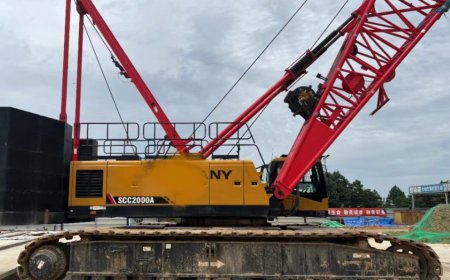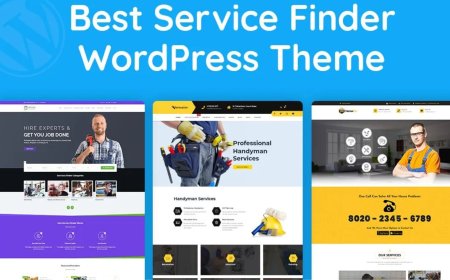Custom CMS Development: 7 Benefits and Considerations
Discover the 7 benefits of Custom CMS Development and learn how our web development services India can elevate your online presence. Click to find out more!

Why invest in custom CMS development when there are pre-built options available? Well, as your business grows, so will your website requirements and off-the-shelf CMS often fall short of meeting those evolving needs.
While ready-made CMS systems like WordPress and Wix are great if you want a temporary website, but not as a long-term solution. Its because they are built with a one-size-fits-all approach, meaning youre limited to pre-designed templates and plugins. However, each website needs different features from design specifications to integrations.
So, if you want a robust website that stands throughout your business journey, its essential to invest in a top custom web development company in the USA.
With custom CMS development, you get more than just a content platformyou get a fully tailored CMS system that evolves with your business. Still in dilemma? Keep reading this insightful post till the end as well be discussing,
-
What is custom CMS software and how does it work?
-
The top 7 benefits of choosing custom CMS web development.
-
Key steps involved in building a robust CMS system.
-
Important factors to consider before getting started.
Lets dive in!
What is Custom CMS Software?
A custom CMS is a content management system that is specifically built to suit the unique requirements of your business. Unlike CMS web development solutions like WordPress or Drupal with pre-made templates, a custom CMS system is created from scratch, customized to match your brands needs.
This gives your business full control over design, functionality, and scalability. So, whether you're running an e-commerce store, a blog, or a corporate website, custom CMS software can be tailored to provide exactly what you need.
7 Key Benefits of Investing in Custom CMS Development
Now that you have an overview about custom CMS system, lets have a look at its significant advantages for your business,
-
Tailored to Your Business Needs
A custom CMS is designed to meet your specific business requirements, from content structure to user roles. You can streamline processes and implement features that off-the-shelf CMS solutions may lack.
Whether you need specialized content management tools or smooth integration with third-party services, a custom CMS ensures that the system is built for your business.
-
Scalability for Future Growth
As your business evolves, so will your websites requirements. A custom CMS allows for flexibility and scalability, ensuring that your content management system grows with your business.
Whether you need to expand content management capabilities or integrate new functionalities, a custom CMS can adapt easily without the constraints that come with pre-built platforms.
-
Enhanced Security
Security is one of the primary concerns when managing a website. Custom CMS development ensures that the system is built with robust security measures in mind, tailored to the needs of your business.
With a custom-built CMS, you can implement strict security protocols, data protection measures, and regularly update the system to stay ahead of potential threats. This is not all possible with the generic security features of off-the-shelf CMS solutions.
-
Improved Performance
Pre-built CMS platforms come with many features, most of which your business may never need. This can lead to bloated systems that impact website performance.
Custom CMS development focuses on building a lightweight, efficient platform with the features you need, resulting in faster load times and better SEO rankings.
-
Complete Control Over Design
With custom CMS software, you have complete control over the design and functionality of your website. This means you can implement unique branding elements and user interface features that reflect your business identity.
Custom design options also make it easier to create a smooth, user-friendly experience for visitors, which is vital for engagement and conversions.
-
Seamless Integrations
Many businesses rely on third-party tools and software for operations, such as CRMs, marketing platforms, or e-commerce solutions. Custom CMS development allows for smooth integration with these systems, ensuring that all tools work together smoothly.
This enhances the efficiency of your websites operations. You can also automate processes and sync data between your CMS and other business systems.
-
Better Content Personalization
A custom CMS enables content personalization, allowing you to deliver tailored content to your website visitors. By tracking user behavior and preferences, your custom CMS solution can display relevant content that resonates with different audience segments.
This results in increasing engagement and driving conversions. This level of personalization is difficult to achieve with standard CMS solutions.
Steps Involved in Developing a Robust Custom CMS System
Developing a custom CMS system involves several crucial steps to ensure the final product aligns with your business goals. Heres an overview of the development process,
Step 1: Requirement Gathering
The first step is to gather detailed requirements from your business stakeholders. This includes understanding your content management needs, desired functionalities, integrations, and performance expectations. Its essential to clarify these requirements upfront to ensure the project stays on track.
Step 2: Planning and Strategy
Once requirements are gathered, the development team will map out the entire project plan, including timelines, resource allocation, and technical specifications. The strategy should address the long-term vision for your website, ensuring scalability and flexibility.
Step 3: Design and Prototyping
The next phase involves designing the user interface and user experience for the custom CMS. Mockups and prototypes will be created to visualize the final design before development begins. This stage ensures that the design aligns with your branding and provides an intuitive user experience.
Step 4: Development
After the design is approved, the development phase begins. This involves writing the code for the CMS, setting up the database, and implementing the core features and functionalities based on the project requirements.
Step 5: Testing
Rigorous testing is essential to identify and resolve any bugs or issues before the CMS is deployed. This phase includes functionality testing, performance testing, security testing, and user acceptance testing (UAT).
Step 6: Deployment
Once the system passes testing, its time to deploy the custom CMS to your live environment. This includes final checks, configurations, and backups to ensure the system works smoothly in production.
Step 7: Training and Maintenance
After deployment, its important to train your team to use the CMS effectively. Ongoing maintenance and support are also vital to ensure the system remains updated, secure, and optimized.
Aspects You Need to Consider Before Developing a Custom CMS Software
While custom CMS development offers numerous benefits, its essential to consider the following factors before embarking on the project,
-
Budget and Timeframe: Custom CMS development is often expensive, but ready-made is more expensive in the long run. Its important to assess that your budget and timeline align with the project requirements.
-
Technical Expertise: Developing a custom CMS requires a team of experienced developers with expertise in CMS architecture, coding languages, and web security. Make sure you have access to the right resources.
-
Long-Term Maintenance: A custom CMS requires ongoing maintenance and updates to keep it functioning efficiently and securely. Factor in the costs and resources needed for long-term upkeep.
-
Business Requirements: Consider the specific needs of your business, including content management features, integrations, and scalability requirements. Ensure that the custom CMS can meet these needs both now and in the future.
Final Thoughts
Investing in custom CMS development offers numerous benefits, including tailored functionalities, enhanced security, improved performance, and better user experiences. However, its essential to carefully consider factors like budget, timeline, and ongoing maintenance before embarking on the project.
If you're ready to take control of your website and enhance its functionality with a custom CMS system, hire dedicated developers from Indiatoday. With the right team, you can create a custom CMS solution that not only meets your current needs but also scales with your business as it grows.

































